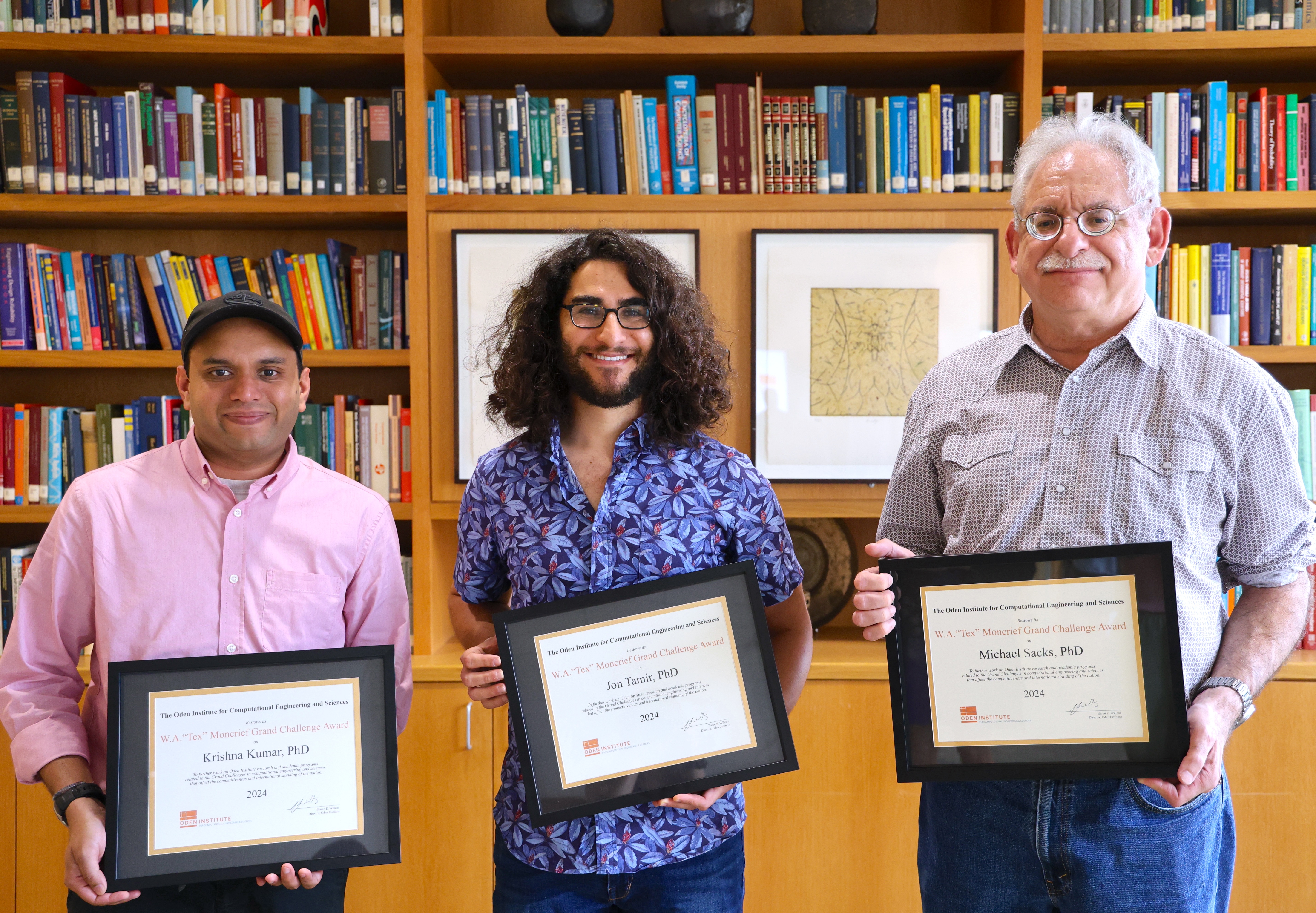The Oden Institute for Computational Engineering and Sciences at The University of Texas at Austin has awarded the W. A. ''Tex'' Moncrief Grand Challenge Awards to three core/affiliated faculty members: Michael Sacks (core), Krishna Kumar (affiliated), and Jon Tamir (affiliated).
Named in honor of one of the Oden Institute’s benefactors, the Moncrief Grand Challenge awards were officially announced during the Oden Institute's annual award ceremony on May 2, and are given to researchers that aim to find solutions to society’s biggest challenges across engineering and sciences. Faculty are chosen based on their highly compelling research proposals related to challenges affecting the competitiveness and international standing of the nation. Awardees receive a stipend of up to $75,000 to cover costs associated with their research proposals.
Michael Sacks, professor of biomedical engineering and Director of Willerson Center for Cardiovascular Modeling and Simulation at the Oden Institute, plans to develop a novel method to quantify and simulate in vivo cerebral vascular vessel wall mechanical state. Sacks plans to utilize various computational approaches alongside the finite element method analysis on unique real patient datasets, which accurately captures the movement of the vessel wall, to estimate local mechanical wall properties in vivo—an accomplishment never before attained. Sacks believes the success of this project will not only enable the prediction of cerebral aneurysm rupture but also significantly enhance the understanding of cerebral aneurysm formation and treatment within the field.
Krishna Kumar, assistant professor of civil, architectural, and environmental engineering, plans to utilize his award to advance the development and optimization of autonomous robotic systems for efficient in-situ resource utilization in lunar exploration. Faced with the challenges of lunar soil variability and dilatant properties in NASA Artemis’ mission to explore the lunar south pole, Kumar's aims to first develop a differentiable digital twin utilizing Graph Network Surrogate (GNS) to infer material properties from video data. He then intends to leverage the gradients generated by the GNS to directly optimize the robotic system’s digging policy. Kumar believes the success of this project will directly support NASA's lunar exploration objectives and establish a solid groundwork for future robotic exploration of other celestial bodies and extreme environments.
Jon Tamir, assistant professor of electrical & computer engineering, plans to expand the deep learning-based reconstruction framework to address blind imaging inverse problems. Tamir’s goal is to develop novel approaches to handling uncertainty in the forward model while ensuring theoretical validity. Tamir intends to utilize the DiffuserCam Lensless Mirflickr Dataset to build a repository of error signals and then train score-based generative models for both reference images and error signals before applying joint posterior sampling reconstruction. Tamir believes the success of this project will result in a general framework for addressing imaging inverse problems with uncertainty in the measurement operator. Furthermore, the result of the project will be integrated into collaboration efforts with Professor Tom Yankeelov and the Center for Computational Oncology.
The scope of research appropriate for submission under this program is very broad. It includes application-driven grand challenge problems across engineering, sciences, and medicine, as well as mathematical, statistical and computational foundations that advance the solution of grand challenge problems. Recipients submit a final report summarizing their accomplishments, along with opportunities to present research accomplishments during Oden Institute Seminar Series.
For more about present and past Moncrief Grand Challenge winners, follow this link.
